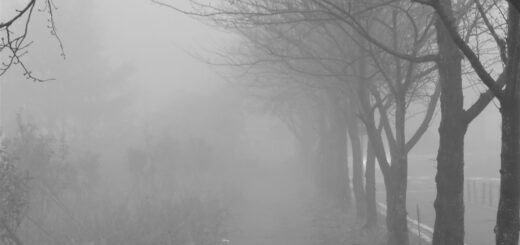An Energy Crisis
The world’s current fidgeting over rising energy prices amid the Russian war of attrition in Ukraine, as though our daily convenience is reason enough to let a rabid tyrant go ahead and blow out the doors of his cage, got me to thinking what a wonderful metaphor this impending “energy crisis” has become for so much of what has gone miserably wrong with our late modern world — the term “late modern” here indicating only that this world no longer deserves to be called modern at all, without qualification.
For our true energy crisis, the crisis of spiritual energy, has been ongoing and in a sense beyond the critical stage for some time now. How perfectly indicative of our flaccid world that our collective panic over a supposed energy crisis should be related only to our cars, rather than to our cause.
The United States of America, since the end of Ronald Reagan’s presidency, has lived without the moral or political energy to sustain its formerly forceful but bright image on the world stage, as a source of hope for the oppressed, and warmth for those trapped on history’s frozen outposts.
Western civilization as a whole, for that matter, has long since been little more than a dry river bed, a hardly noticeable and barely drinkable trickle of thought and art, where once it was the world’s raging river of intellect and invention. The West is mostly memories and fossils now, its vitality sapped through a century of immoderate self-indulgence and universal compulsory indoctrination to defeat and diminution.
There are occasional spits of fire here and there from those nations on the fringes of the West, those with fresh memories of the hard struggles for individuation and opportunity that the mainstream establishment, represented by Western Europe and North America, has simply forgotten, where it has not rejected such goods outright in its collective fit of self-loathing and self-parody. But all modernity beyond those rare sparks lives on a narrow spectrum of shriveled ideals, ranging from comfortable efficiency to comfortable lethargy.
No Shakespeare will appear among us today, because no one today lusts after the totality of human experience. No Mozart, for no one has a spirit wide enough for its surrender to the heavens to be worth the gods’ trouble. No Descartes, for no one has the courage to risk his being on a new image of the mind’s relation to reality. No Hobbes, Locke, or Rousseau, for no one is seeking essential human nature in our climate of comforting relativism and no-fault failure. And no Dostoevsky or Kafka with a palette rich enough to draw something meaningful and even beautiful out of our descent into nihilism or our enslavement to inhuman bureaucracy.
Modernity’s mainstream is all but tapped out, and certainly, manifestly lacking the energy that might produce outbursts of world-altering spiritual activity of the sorts listed above. Any productive future of our civilization — not a future belonging to the next civilization, which is still a long way off, but a near and worthy future for what is left of our “modernity” — belongs to a few fringe-dwellers who live, or might soon live, in those border worlds where poetry and philosophy still exist, are still embodied, in life itself, which is to say beyond the academic museum or the exhibitionism of café intellectuals. It will come, if it comes, from a world where radical dreams and the tangible risk of losing them are deeply felt in everyday life, and where escape, certainty, and comfort at all costs have not yet become the prevailing public morality and the state religion, as they have long since become throughout modernity’s mainstream.
Our energy crisis has been the norm for decades, and hence no longer even feels like a crisis, but merely like a vague emptiness at the core of everything — or even, increasingly, like nature and the good. For necessity is the mother of invention, and right now modernity’s deepest need is to rationalize its listlessness and lack of direction.



